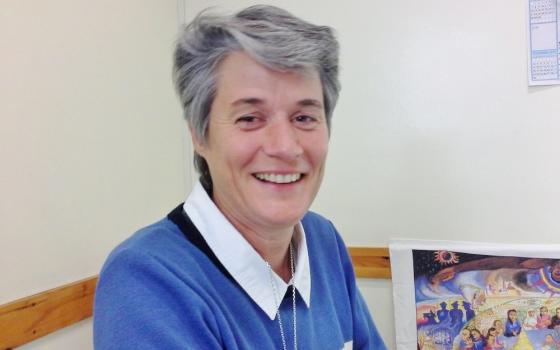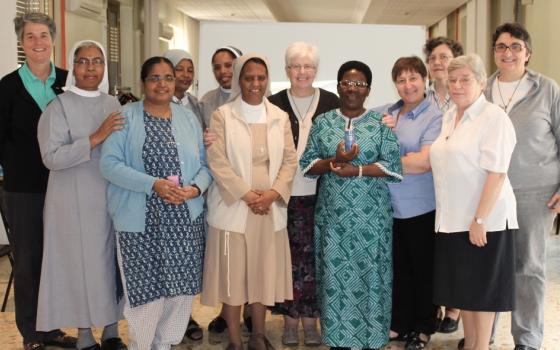Sacred Heart Sr. Florence de la Villeon is getting a preview of some of the challenges she and others will face in December.
De la Villeon and nine other sisters are spending two months in Rome at the International Union of Superiors General training to minister to refugees in Sicily, Italy. But they won't be administering humanitarian aid; they'll be ministering to spiritual needs and helping to build bridges between the refugees and the Sicilian population.
So while Doctors Without Borders handles things such as food and shelter, the intercongregational, international and intercultural group of sisters will work with local dioceses and local sisters through the Union of Major Superiors of Italy to provide for the spiritual needs of people who have left everything behind and fled for their lives.
GSR: This seems like a very different mission than we usually hear about when it comes to the massive flow of refugees into Europe.
De la Villeon: Yes. The church is already doing a lot of things in Sicily. I think what they're asking from us is to make bridges between the Sicilian people and the refugees. We have 10 sisters from eight countries — some speak the language of the migrants, and the bishops are very excited to get sisters who can speak the language.
We will be in two different places and close to some of the camps, so we'll be working with migrants in the street or in the camps. The idea is we don't go with a very formal job to do, like an NGO — we're not coming for a special job. It's more to spend time with them, to listen to them, to see what are their needs. We will be there to listen to them.
The NGO can do all these material jobs that are urgent, but the need of listening to people, taking time with them, counseling them, that's for us to do. The Sicilian people are trying to do it, and the local sisters already there are doing it, but there is a great need. The migrants are traumatized, and very often they discover a new world once they arrive. They need to share and speak about their journey, what they went through, this difficult experience.
And these are not all refugees from Syria, are they? They have different backgrounds and experiences, too?
Yes, we know there are people coming from Eritrea, Sudan and Algeria. But part of our experience here is the same: We have sisters from eight congregations, eight different countries, four continents. We have different mission experience, charisms, personalities and backgrounds. It's not so easy because we don't have a common language. I am from France; there are two sisters from India, two from Eritrea, one from Congo, one from Argentina. We're from all over.
We are trying to build a community within ourselves, to show that even coming from all these countries, we can live together and be a witness for the refugees.
Most of the refugees are Muslim, so we're not going to proclaim the good news of the Lord, but I hope our lives will say it.
Are you nervous? Do you think the project will be a success?
We are very excited, but we see that the challenges are very great. I think all of us are very excited because we see the needs and we want to answer to the needs, but we know it will not be easy.
It's not an easy project. Even among ourselves to live together and form a community is not so easy. We have to build one day a time.
But we are happy. We've only been together one week, but to discover the skill of each one of the sisters, I think we will make it.
[Dan Stockman is national correspondent for Global Sisters Report. Follow him on Twitter @DanStockman or on Facebook.]


